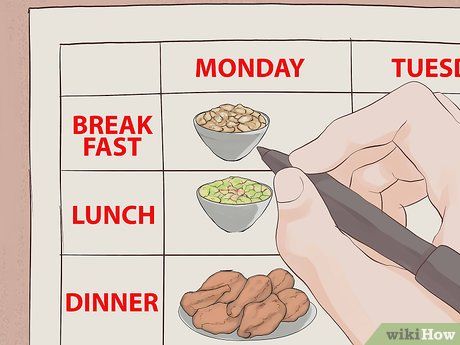Creating a balanced meal plan is essential for optimal health and well-being. A well-balanced diet provides the necessary nutrients your body needs to function properly and maintain overall health. In this article, we will discuss the importance of a balanced meal plan and provide you with some tips on how to create one that works for you.
The Importance of a Balanced Meal Plan
A balanced meal plan is one that includes a variety of foods from all the food groups in the right proportions. This ensures that you are getting all the essential nutrients your body needs to function at its best. A balanced meal plan can help you maintain a healthy weight, improve your energy levels, and reduce your risk of chronic diseases such as heart disease, diabetes, and cancer.
When planning your meals, it’s important to consider the following key nutrients:
Protein – for building and repairing tissues
Carbohydrates – for energy
Fats – for brain function and hormone production
Vitamins and minerals – for overall health and well-being
Tips for Creating a Balanced Meal Plan
Here are some tips to help you create a balanced meal plan that works for you:
1. Plan Ahead
Take some time each week to plan your meals and snacks. This will help you make healthier choices and avoid reaching for convenient, but unhealthy options. Make a list of the foods you need and stick to it when shopping to avoid impulse purchases.
2. Include a Variety of Foods
Include foods from all the food groups in your meal plan to ensure you are getting a wide range of nutrients. Aim to fill half your plate with fruits and vegetables, a quarter with lean protein, and a quarter with whole grains.
3. Watch Portion Sizes
Be mindful of portion sizes to avoid overeating. Use smaller plates and bowls to help control your portion sizes, and listen to your body’s hunger cues to know when you are full.
4. Limit Processed Foods
Limit your intake of processed foods, such as sugary snacks, fast food, and pre-packaged meals. These foods are often high in unhealthy fats, sugars, and additives, and lack important nutrients your body needs.
5. Stay Hydrated
Make sure to drink plenty of water throughout the day to stay hydrated. Water is essential for digestion, nutrient absorption, and overall health. Aim to drink at least eight 8-ounce glasses of water a day.
Sample Balanced Meal Plan
Here is an example of a balanced meal plan for a day:
Breakfast
Greek yogurt topped with berries and a sprinkle of granola
Lunch
Grilled chicken salad with mixed greens, cherry tomatoes, cucumbers, and a vinaigrette dressing
Snack
Carrot sticks with hummus
Dinner
Baked salmon with quinoa and roasted asparagus
Snack
Apple slices with almond butter
By following these tips and creating a balanced meal plan that includes a variety of foods, you can improve your health and well-being. Remember to listen to your body’s hunger cues, stay hydrated, and enjoy your meals mindfully. Here’s to a healthier you!
